Should you match your bathroom floor and wall tiles? Experts weigh in on the best way to design your scheme
Tiles make a huge impact on a bathroom – here's how to choose the best design for your space
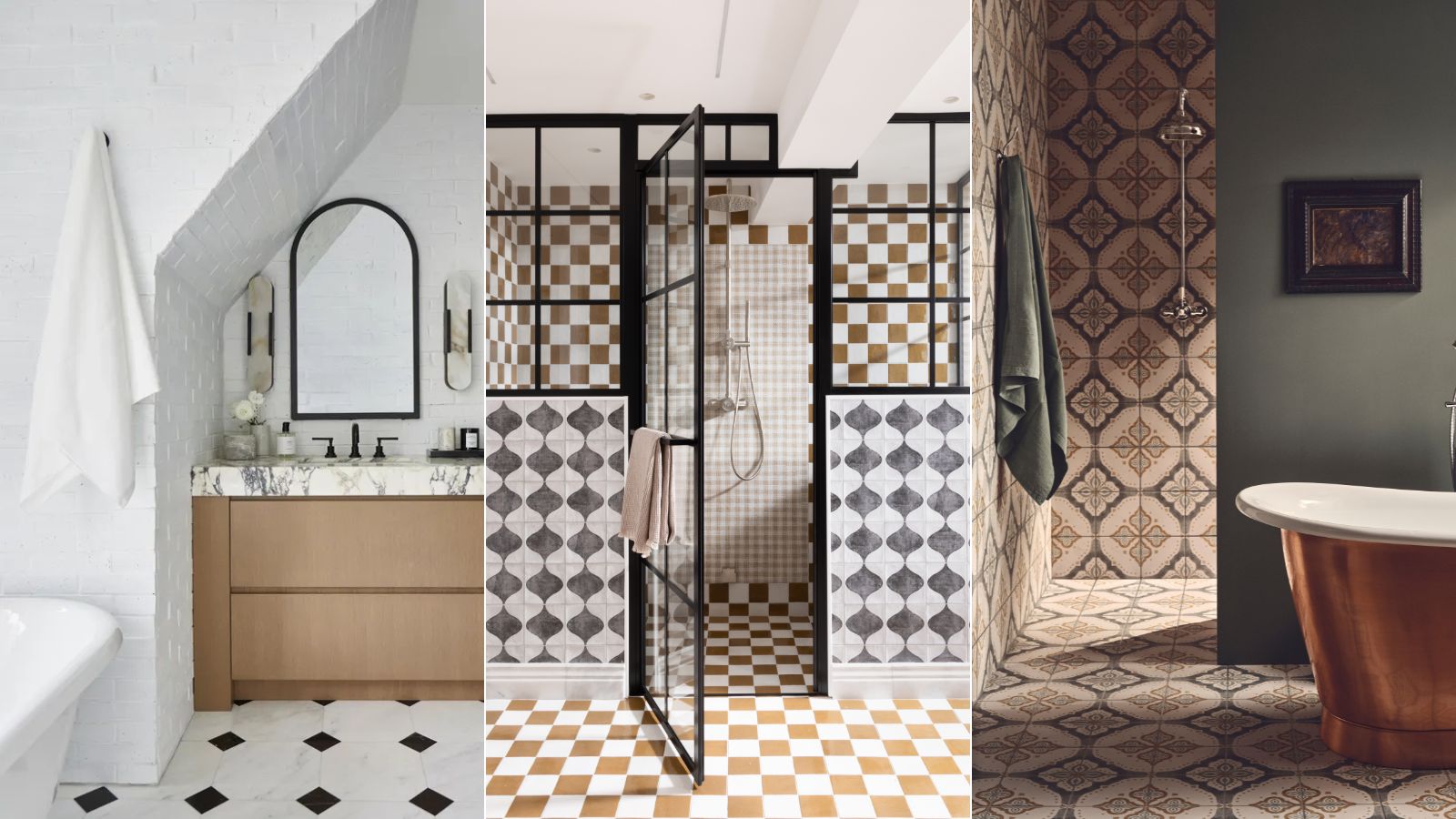

The bathroom is always a tricky space to design. Function and style have to blend seamlessly, but it's not always easy when you're working with a lot of hard, cold surfaces.
Bathroom tiles are one feature where you can make a real style statement that's also incredibly practical – but should you match your bathroom floor and wall tiles, or opt for contrasting designs?
It's a decision you'll want to get right the first time, but what is the right approach? To discover the best tile combinations, we've asked design experts if you should use the same pieces on your walls and floors, or if a more eclectic combination is the better choice.
Should you match your bathroom floor and wall tiles?
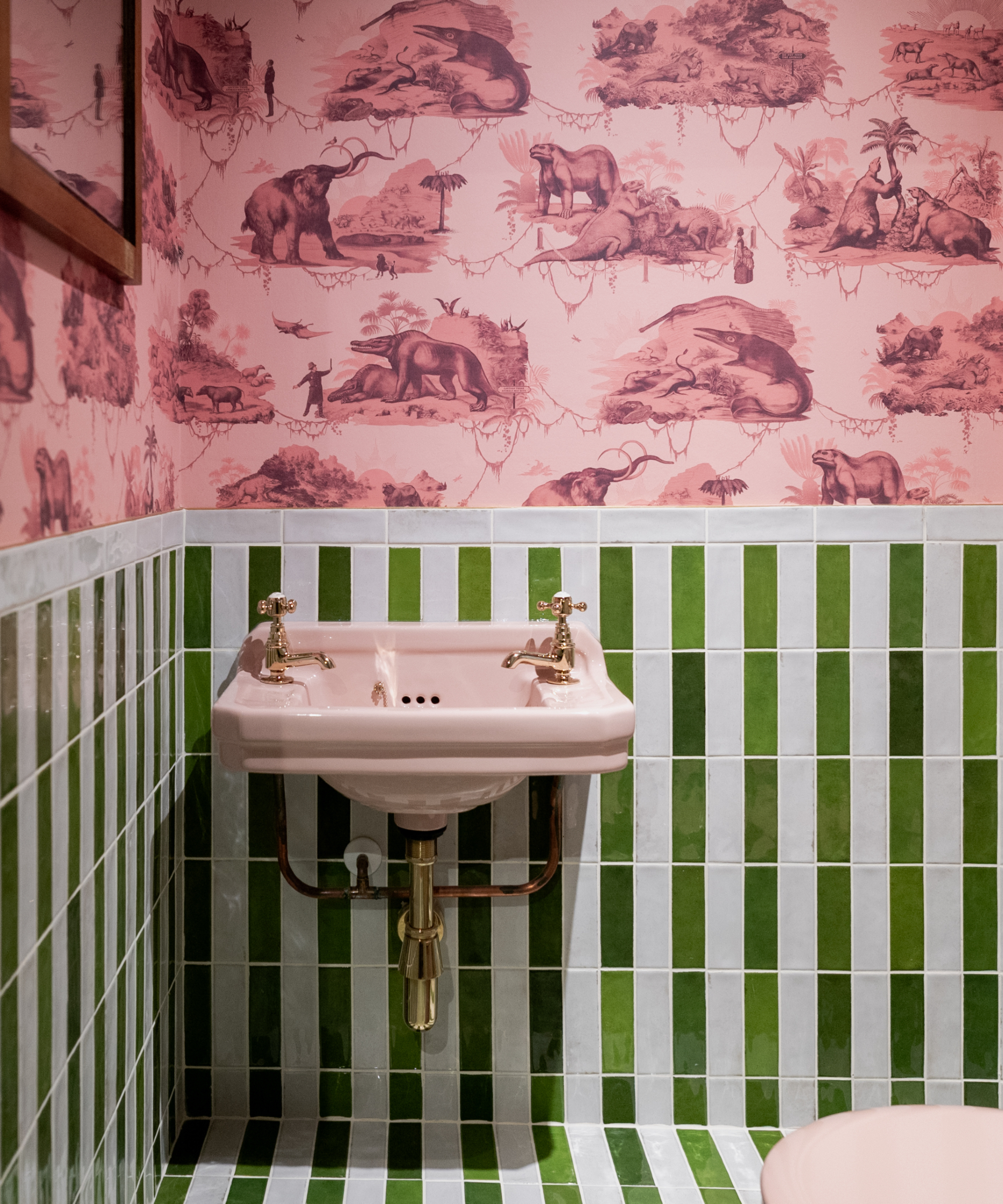
Whether you tile drench your scheme or pair tiles with painted walls and wallpaper accents, tiles are essential in bathrooms. They're the easiest way to create a water-tight space while also introducing color, texture, and unique appeal – so what is the best approach?
'There isn’t a correct answer or a firm yes or no. If you want to color drench your bathroom, you can stick to the same floor and wall tiles, so long as they are suitable for floors and walls as not every tile works for both. This is especially true when considering things like slip ratings which are so important when it comes to bathroom floors,' says Grazzie Wilson, head of creative at Ca’ Pietra.
But while there are no rules for matching or mixing tiles, Grazzie admits that she prefers a mix of designs. 'You might love marble and want to ensure that your bathroom is full of this natural material but that doesn’t mean you have to stick to the same tile. Adding interest by mixing different shapes of the same marble can add more personality to the space by creating textural interest.'
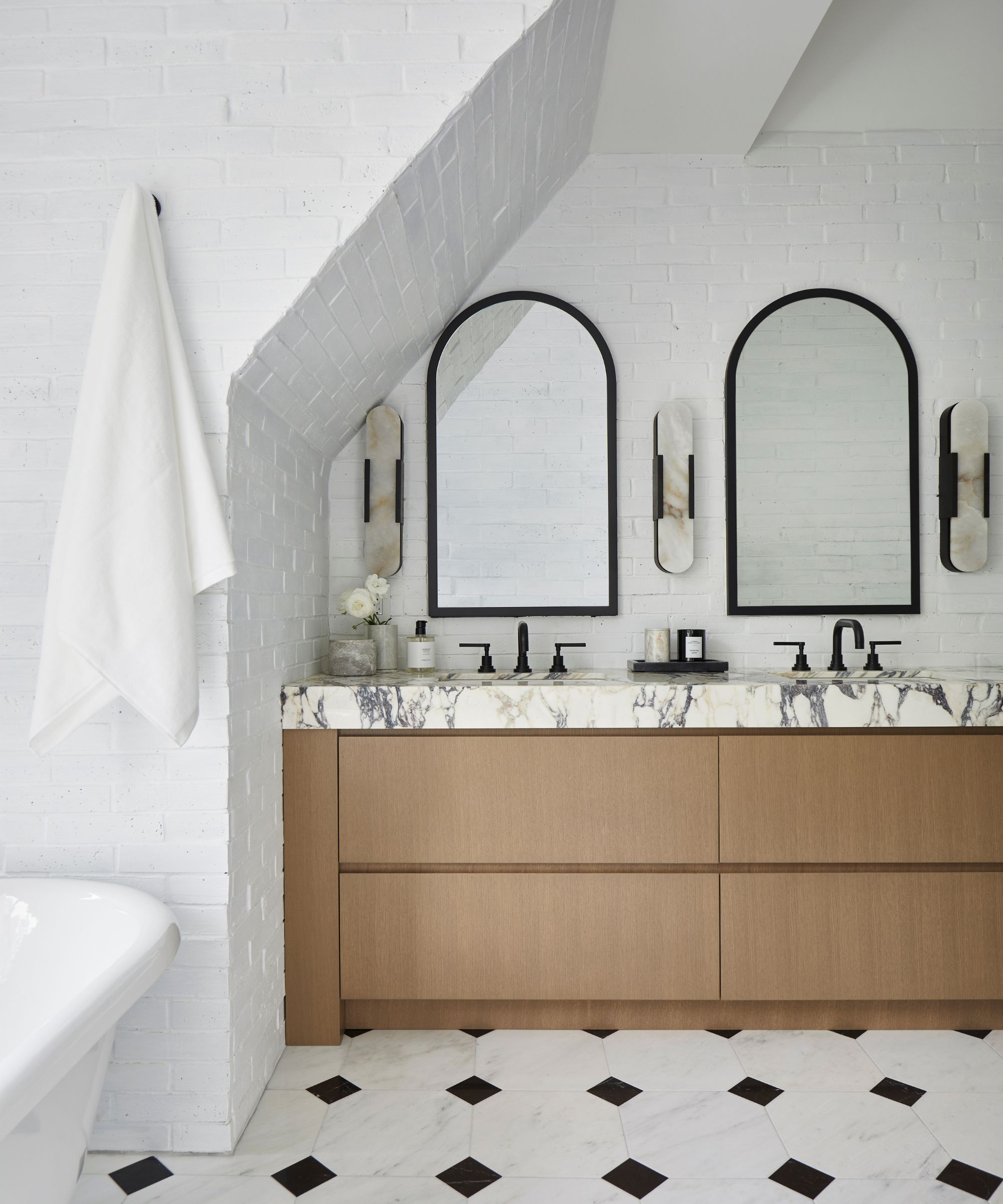
'You can always stick to a similar color palette if you’re looking to go for something seamless and mix up materials. I wouldn’t personally mix more than 3 tiles in a space (without it looking intentionally eclectic),' she adds.
However, if you do prefer the idea of matching your bathroom floor and wall tiles, whether it's to create a maximalist bathroom look or a more seamless design, the tile selection really is key.
'Encasing your bathroom walls and floor in tiles is a bold yet timeless way to make a statement, transforming the room into a space of texture and depth. We recommend selecting a patterned tile with an earthy tone to create an impactful yet cohesive look,' says Carly Allison, head of product design at Fired Earth.
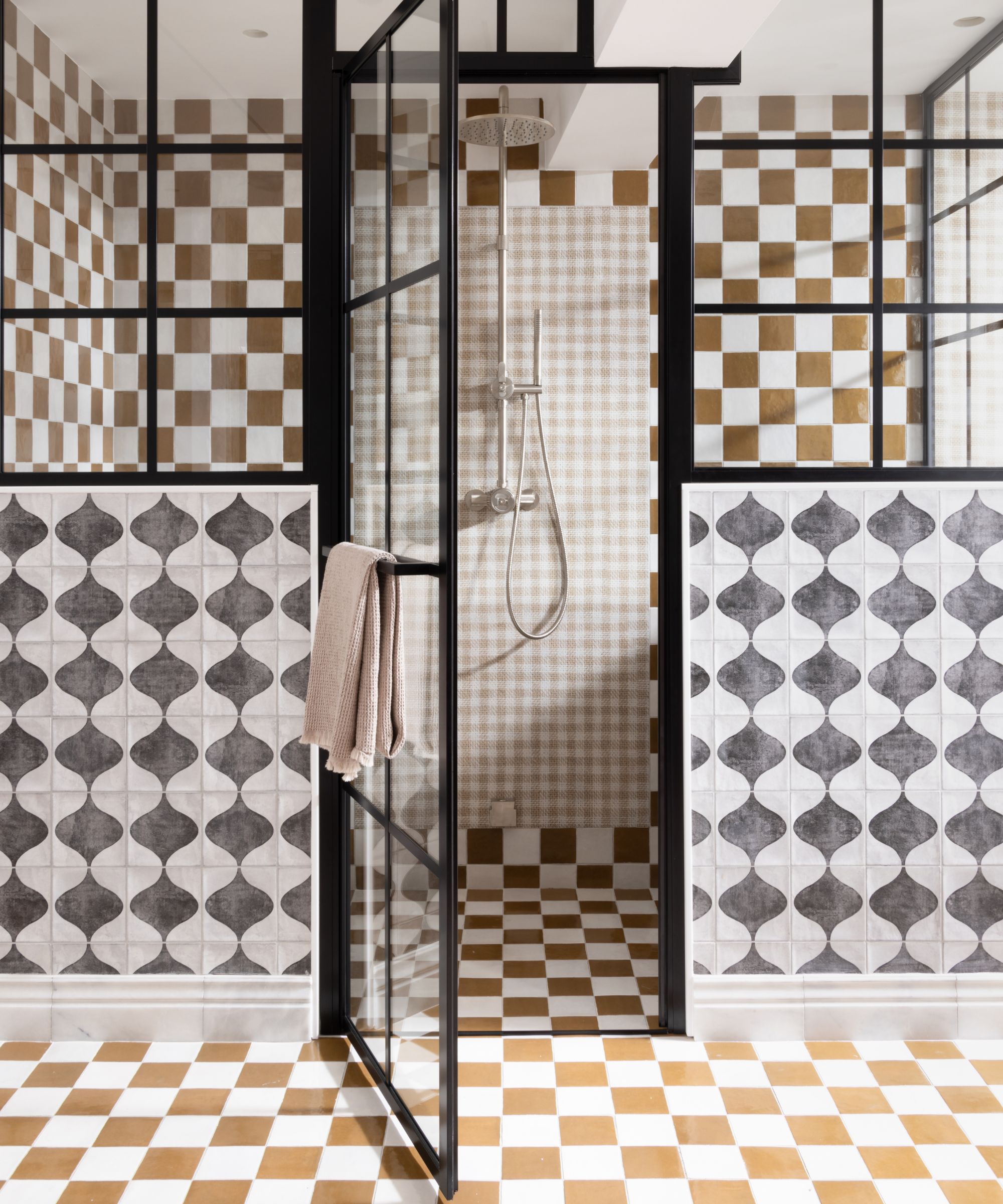
Lee Thornley, founder of Bert & May, agrees, explaining that: 'When it comes to tile drenching across the floor and walls, the impact is very dependent on your tile choice. For example, enveloping a space with a white marble porcelain tile creates a calming, cohesive atmosphere, while using a patterned option makes a bold and inviting statement.'
This applies whether you are choosing to match your bathroom floor and wall tiles or introduce two or three variations. With one consistent tile, you need to ensure the design, whether it's plain, stone, or patterned, speaks to your interior design style without overwhelming the space. With a mix of tiles, they have to complement each other and feel cohesive in the space.
'We advise choosing a tile, or combination of tiles, that you love and that compliments the feel and character of your home, incorporating it to the extent you feel is right for the space. The charm of tile drenching comes from how it mixes practicality with creativity, and it will endure for as long as we push the design of the tile to its limits,' he adds.
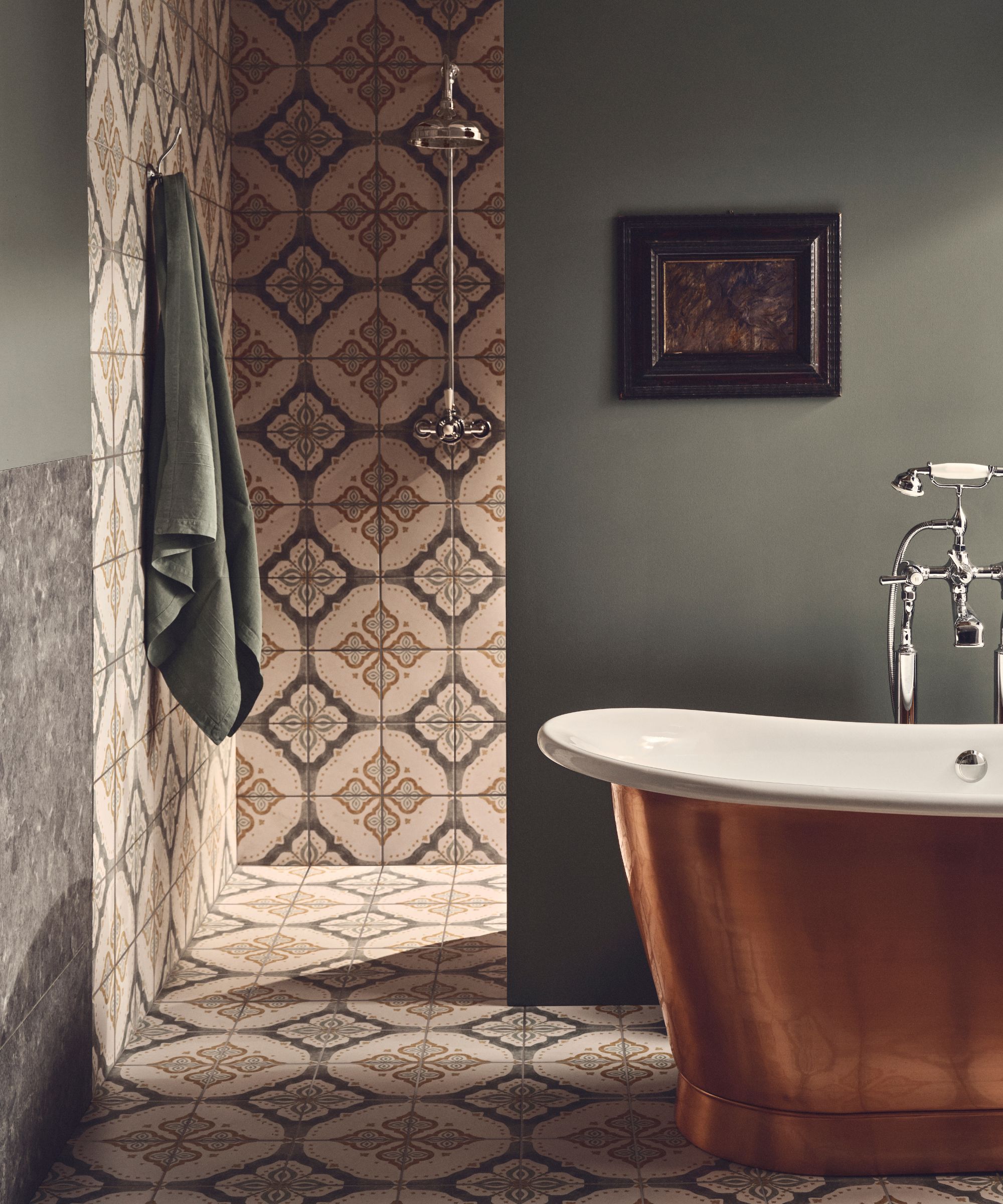
There's a middle ground here, too – if you don't like the idea of the same tile on the walls and floors, but also don't want something completely different, why not compromise between the two?
'I often design spaces where the same tile is used for both the floor and walls but in different finishes or formats. For instance, pairing hexagonal tiles on the floor with large-format tiles on the walls can create visual interest and depth,' says Katie Gisby, designer at West One Bathrooms.
'For added drama, consider using the same tile in the shower area as on the floor or walls, contrasting it with a different tile in the rest of the bathroom. This approach enhances the shower as a focal point while maintaining cohesion with the overall design,' she adds.
Above all, the tiles you choose need to be first and foremost functional, while also creating the atmosphere you want to achieve. 'By thoughtfully combining these elements, you can create a bathroom that is both functional and visually stunning, showcasing your style while ensuring practicality.'
There really are no rules when it comes to tiles. Matching floor and wall tiles makes sense if you want a bold or encompassing scheme, whereas a few different tile designs can add interest and dimension to a bathroom. Make sure you choose tiles that are functional and speak to your style – creating a bathroom you love is the main priority.
Sign up to the Homes & Gardens newsletter
Design expertise in your inbox – from inspiring decorating ideas and beautiful celebrity homes to practical gardening advice and shopping round-ups.

I’ve worked in the interiors magazine industry for the past five years and joined Homes & Gardens at the beginning of 2024 as the Kitchens & Bathrooms editor. While I love every part of interior design, kitchens and bathrooms are some of the most exciting to design, conceptualize, and write about. There are so many trends, materials, colors, and playful decor elements to explore and experiment with.
-
 I have been looking for a versatile backyard furniture color that will look just as good in summer 2026 – Stanley Tucci proposes gray
I have been looking for a versatile backyard furniture color that will look just as good in summer 2026 – Stanley Tucci proposes grayStanley's gray and wood patio furniture is modern yet natural, making it a timeless color choice for backyard color palettes
By Hannah Ziegler
-
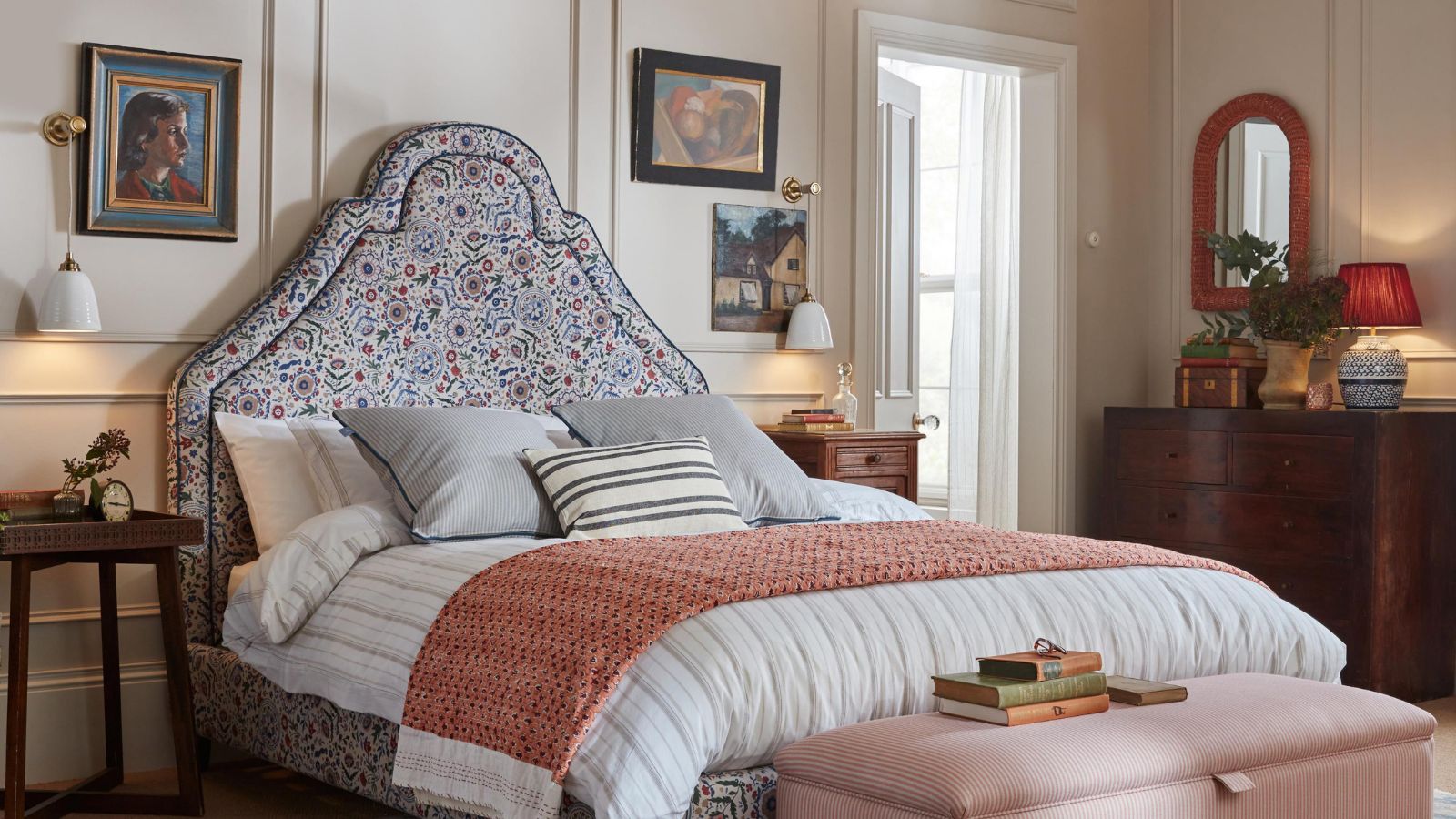 I only use this one storage solution to stash my out-of-season clothes – it makes moving and tidying oh-so easy
I only use this one storage solution to stash my out-of-season clothes – it makes moving and tidying oh-so easyStorage bags with windows make lesser-used garments a breeze to find
By Eve Smallman